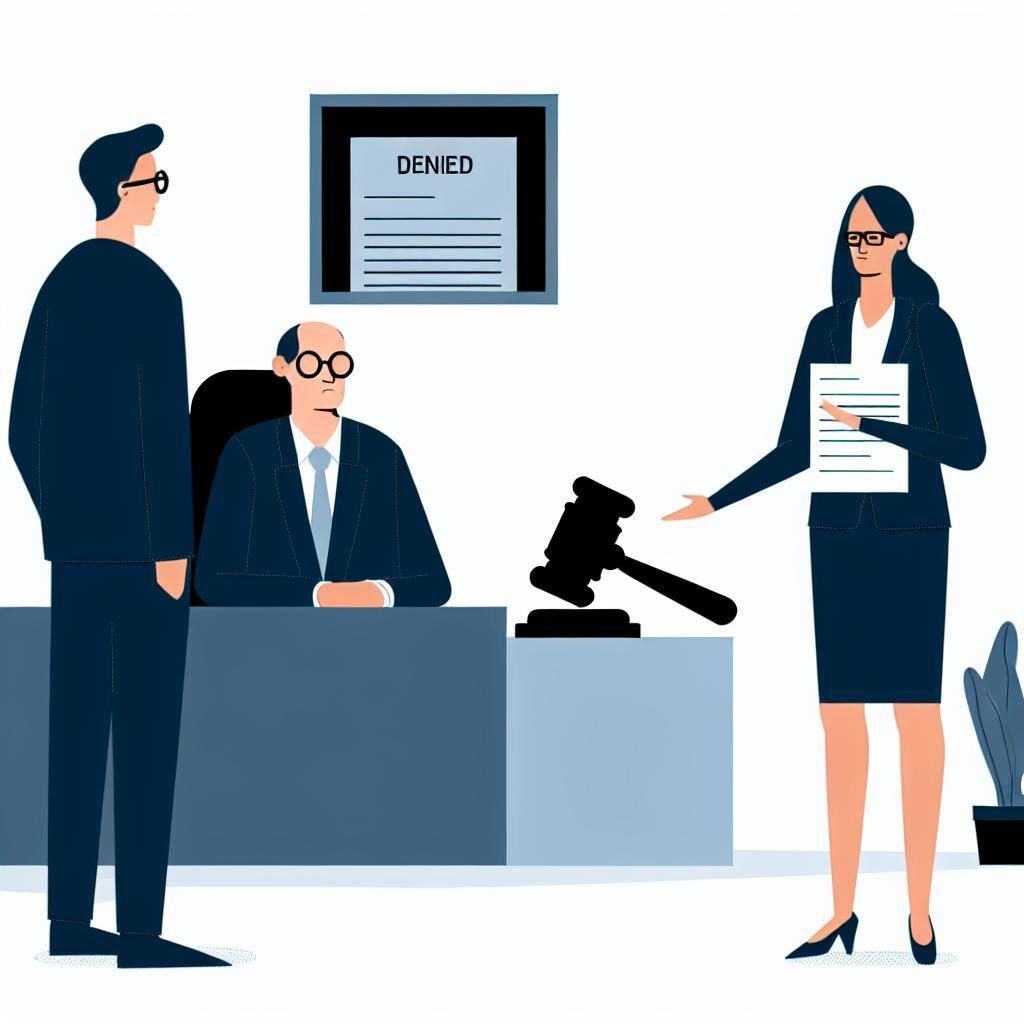3 min read
Eichenberger v. Kijakazi: The Social Security Appeal Process
Joe Whitcomb
:
Sep 25, 2024 1:30:00 PM

If you’ve ever faced a denied disability claim, the Eichenberger v. Kijakazi case offers crucial insights into how the Social Security appeals process works. Sarah J. Eichenberger's appeal against Kilolo Kijakazi, the acting commissioner of Social Security, provides valuable lessons for anyone navigating similar challenges.
Case Overview
In August 2023, Sarah J. Eichenberger appealed a decision by the Social Security Administration (SSA) denying her disability benefits. The appeal took place in Portland, Oregon, and the final ruling was handed down on September 12, 2023. This case highlights the complexities of appealing a Social Security disability denial and the importance of understanding how your medical evidence is evaluated.
Key Takeaways for Your Social Security Appeal Process
- Evidence Matters: The appellate court upheld the lower court’s decision because substantial evidence supported the Administrative Law Judge’s (ALJ) findings. If you’re appealing a denial, presenting strong, comprehensive medical evidence that clearly supports your claim is vital.
- Medical Records and Symptoms: In Eichenberger’s case, the ALJ discounted her medical evidence based on new records showing improvement and the plaintiff’s engagement in activities that seemed inconsistent with her claimed limitations. Ensure that your medical records reflect the current state of your health and clearly document how your condition impacts your ability to work.
- Functional Limitations: The ALJ examined claims about functional limitations and found discrepancies, such as inconsistent communication with healthcare providers. It’s essential to demonstrate the impact of your condition on your daily life and work capabilities.
- Legal Standards and Review: The court applied a de novo review standard, which carefully examined whether the lower court made any legal errors. Understanding how these standards apply can help you prepare a more effective appeal.
- Precedents and Rulings: The case referenced prior decisions like Smartt v. Kijakazi and Lingenfelter v. Astrue. Familiarizing yourself with similar cases can provide context for how courts may interpret your evidence.
How Whitcomb Selinsky, PC, Can Help
Navigating the Social Security appeal process can be challenging, especially after a denial. If you're feeling overwhelmed, Whitcomb Selinsky, PC, is here to help. Our experienced disability benefits lawyers can guide you through the complexities of your case, ensuring your appeal is strong and well-supported. Contact us to learn how we can assist you in securing the benefits you deserve.
If you’ve ever faced a denied disability claim, the Eichenberger v. Kijakazi case offers crucial insights into how the Social Security appeals process works. Sarah J. Eichenberger's appeal against Kilolo Kijakazi, the acting commissioner of Social Security, provides valuable lessons for anyone navigating similar challenges.
Case Overview
In August 2023, Sarah J. Eichenberger appealed a decision by the Social Security Administration (SSA) denying her disability benefits. The appeal took place in Portland, Oregon, and the final ruling was handed down on September 12, 2023. This case highlights the complexities of appealing a Social Security disability denial and the importance of understanding how your medical evidence is evaluated.
Key Takeaways for Your Social Security Appeal Process
- Evidence Matters: The appellate court upheld the lower court’s decision because substantial evidence supported the Administrative Law Judge’s (ALJ) findings. If you’re appealing a denial, presenting strong, comprehensive medical evidence that clearly supports your claim is vital.
- Medical Records and Symptoms: In Eichenberger’s case, the ALJ discounted her medical evidence based on new records showing improvement and the plaintiff’s engagement in activities that seemed inconsistent with her claimed limitations. Ensure that your medical records reflect the current state of your health and clearly document how your condition impacts your ability to work.
- Functional Limitations: The ALJ examined claims about functional limitations and found discrepancies, such as inconsistent communication with healthcare providers. It’s essential to demonstrate the impact of your condition on your daily life and work capabilities.
- Legal Standards and Review: The court applied a de novo review standard, which carefully examined whether the lower court made any legal errors. Understanding how these standards apply can help you prepare a more effective appeal.
- Precedents and Rulings: The case referenced prior decisions like Smartt v. Kijakazi and Lingenfelter v. Astrue. Familiarizing yourself with similar cases can provide context for how courts may interpret your evidence.
How Whitcomb Selinsky, PC, Can Help
Navigating the Social Security appeal process can be challenging, especially after a denial. If you're feeling overwhelmed, Whitcomb Selinsky, PC, is here to help. Our experienced disability benefits lawyers can guide you through the complexities of your case, ensuring your appeal is strong and well-supported. Contact us to learn how we can assist you in securing the benefits you deserve.


